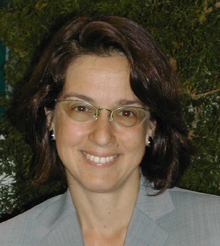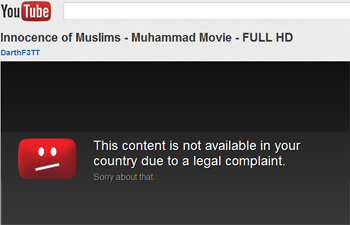Welcome to the 59th episode of the Mediatwits podcast, with Mark Glaser and Rafat Ali as co-hosts. This week is a special edition of the podcast completely focused on the challenges of online services such as YouTube, Facebook and others who have to balance free speech and hate speech while serving global audiences. The latest example being “The Innocence of Muslims” video that was posted on YouTube, and temporarily removed in Libya and Egypt by the service, later having them restored. Was it the right decision or too little, too late? Our guests include the World Policy Institute fellow Susan Benesch, EFF’s Trevor Timm and legal scholar Jonathan Peters.
How transparent should these companies be about their decisions on pulling content? Can they be expected to follow the letter of the law in every country? And what are the exceptions to their rules? We asked various companies to provide someone for the podcast, but Yahoo, Google/YouTube, Facebook and Twitter declined. However, YouTube reiterated its statement about the “Innocence of Muslims” video:
“We want YouTube to be a community everyone can enjoy as well as an important platform for free expression. This inevitably raises tensions over some videos because what is OK in one country may be controversial in another. As we have always made clear, this video [“Innocence of Muslims”] is within our community guidelines. We only restricted access to it in Libya and Egypt on a temporary basis due to the very difficult circumstances there. Now that the situation is calmer, we’ve reinstated the versions that had been restricted.”
Subscribe to the podcast here
Subscribe to Mediatwits via iTunes
Follow @TheMediatwits on Twitter here
Guest Bios
Susan Benesch is Senior Fellow at the World Policy Institute in New York where she directs the Dangerous Speech Project. Benesch also teaches international human rights at American University’s School of International Service.

Trevor Timm is an activist and blogger for the Electronic Frontier Foundation or EFF, where he specializes in free speech and government transparency issues. He has also contributed to The Atlantic, Al-Jazeera, The Guardian, Foreign Policy, and PBS MediaShift.
Jonathan Peters is a media lawyer and the Frank Martin Fellow at the Missouri School of Journalism. He blogs about free speech for the Harvard Law & Policy Review, and he has written on legal issues for The Atlantic, Slate, Wired, The Nation, and PBS MediaShift, among others.
Our show is now on Stitcher! Listen to us on your iPhone, Android Phone, Kindle Fire and other devices with Stitcher. Find Stitcher in your app store or at stitcher.com.
Intro and outro music by 3 Feet Up; mid-podcast music by Autumn Eyes via Mevio’s Music Alley.
Highlights from the Show
Intro
1:00: Baseball fever vs. cricket fever
2:45: Rafat’s experience with website blocking around the world
3:40: India asked for content pull-downs on Orkut years ago

Special roundtable on free speech vs. hate speech
5:15: Intro to roundtable
6:40: Special guests Susan Benesch, Trevor Timm and Jonathan Peters
8:25: Benesch explains differences between hate speech and dangerous speech
11:10: Can EFF help out startups dealing with free speech issues?
13:00: Timm: Companies have outsized responsibility when it comes to speech online
16:40: Peters: Companies operating on a global scale have to follow local laws in many countries
22:15: Benesch: ‘Innocence of Muslims’ is not a work of art, and has no purpose other than to provoke Muslims

24:50: Timm: What about parodies by ‘South Park’ of Mohammed and Mormons?
25:30: Benesch: YouTube can’t really “block” videos, because the content gets posted all over the web
30:00: Peters runs down various other examples of content blocked around the world
More Reading
The Innocence of YouTube at Foreign Policy
Google Transparency Report at Google
When Censorship Makes Sense: How YouTube Should Police Hate Speech# at The New Republic
Free Speech in the Age of YouTube at NY Times
Free Expression and Controversial Content on the Web at Google Blog
On the Web, A Fine Line on Free Speech Across Globe at NY Times
Striking balance between free speech and ‘hate speech’ is Internet balancing act at The Wisconsin Techology Council
Dangerous Speech: A Proposal to Prevent Group Violence by Susan Benesch
MediaShift Poll
Don’t forget to vote in our poll, this time about how YouTube should deal with controversial videos:
Mark Glaser is executive editor of MediaShift and Idea Lab. He also writes the bi-weekly OPA Intelligence Report email newsletter for the Online Publishers Association. He lives in San Francisco with his son Julian and fiancee Renee. You can follow him on Twitter @mediatwit. and Circle him on Google+

